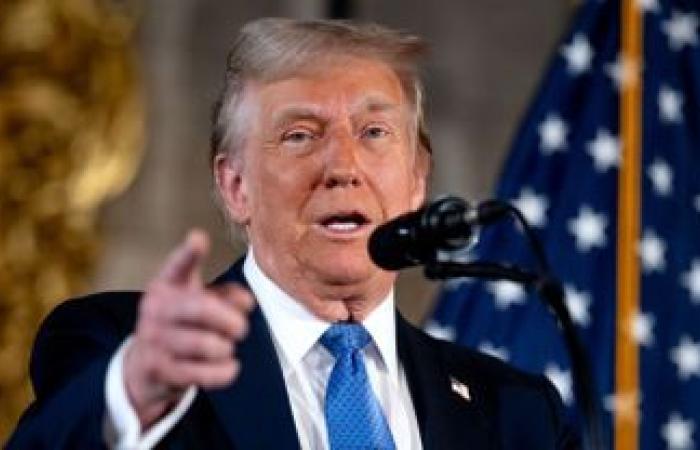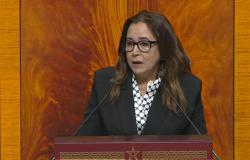US President-elect Donald Trump yesterday threatened the European Union (EU) with tariffs if it does not reduce its trade surplus with Washington by buying oil and gas from it. “I told the European Union that it must make up its enormous deficit with the United States by purchasing our oil and gas on a large scale,” wrote the Republican billionaire in a message on his social network Truth, relayed by AFP.
“Otherwise, it’s customs tariffs all the way!!! », Threatened Donald Trump. In his comment, D. Trump seems rather to mention the United States' trade deficit with the EU. Imports of goods from the EU amounted to $553.3 billion in 2022, while exports from the United States to the Twenty-Seven represented $350.8 billion, according to American figures.
The EU reacted yesterday by saying it was ready to consider “ways to strengthen an already strong relationship, including discussing our common interests in the energy sector” with Donald Trump, according to a Commission spokesperson European. The EU also emphasizes that the entire trade balance must be taken into account. Brussels certainly has a “substantial” trade surplus with regard to goods, but the United States for its part also has a “substantial” surplus with regard to trade in services.
“This is not always taken into account in the type of messages to which you are referring,” said this spokesperson, when asked about the message published by D. Trump on his social network. The President of the European Commission Ursula von der Leyen already raised at the beginning of November the possibility that the United States would supply more liquefied natural gas (LNG) to the EU to replace Russian gas. Donald Trump, who takes office in January, has threatened to impose tough tariffs on the United States' trading partners, including Canada, Mexico and China, which could have repercussions on the global economy.
On December 6, the EU concluded a vast trade agreement with four South American Mercosur countries (Argentina, Brazil, Paraguay, Uruguay) aimed at creating a free trade zone for 700 million consumers. Ms von der Leyen then assured that the agreement would create trade bridges at a time when “strong winds are blowing in the opposite direction, towards isolation and fragmentation”, a comment seen as an allusion to Donald Trump's threats of increase customs duties. The US president-elect's tariff threats could, analysts say, be bragging or leverage for future trade negotiations when he takes office.
But he continued to insist that “properly used” tariffs would be positive for the U.S. economy. “Our country is currently losing to everyone,” he said earlier this week. “Customs taxes will make our country rich.”
Shutdown
Trump's announcement comes as the United States found itself on the verge of budgetary paralysis yesterday after the successive failures of several texts in Congress, and while no solution to the crisis is in sight for the moment. At midnight local time (05:00 GMT today), the federal state will find itself in an effective “shutdown” situation.
The result: technical unemployment for hundreds of thousands of civil servants, the freezing of several social benefits and the closure of certain nurseries. An extremely unpopular situation with Americans, especially as Christmas approaches. However, Congress was well on its way to avoiding this situation on Tuesday when the Republican President of the House of Representatives, Mike Johnson, announced that he had reached an agreement with the Democrats.
This notably included more than 100 billion in aid to American regions recently devastated by natural disasters. Alas, the negotiated agreement was torpedoed the next day by Donald Trump and Elon Musk.
The president-elect denounced a “ridiculous and extraordinarily onerous” text. His ally, the richest man in the world, launched a virulent burst of posts on his social network X to express his opposition, urging elected officials to “kill the text”. The twist took Congress by surprise and provided a glimpse of a Trump presidency even before the Republican took office on January 20. With a style, similar to his first mandate, not bothering with conventions, even if it means causing a certain chaos.
Elon Musk's resounding opposition also illustrated the growing influence of the boss of SpaceX and Tesla on major political decisions. To the point, for some elected Democrats, of ironically speaking about a “President Musk”, to whom Donald Trump would be reduced to the role of vassal.






